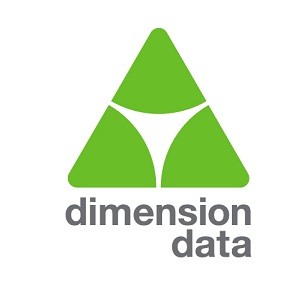The value of virtualisation in natural resources
 Modern natural resources organisations are constantly searching for cost-effective ways to support their growing Information Management environments while driving the maturity of their Information and Communication Technology (ICT) infrastructure.
Modern natural resources organisations are constantly searching for cost-effective ways to support their growing Information Management environments while driving the maturity of their Information and Communication Technology (ICT) infrastructure.
Virtualisation of the compute and storage infrastructure space in the Information Management environment is a viable approach that natural resources organisations can take to enable agility, reduce long-term cost of ownership, and drive a more mature infrastructure environment.
A recent Gartner Magic Quadrant x86 Server Virtualisation Infrastructure report indicated that the market is the foundation for two important trends: infrastructure modernisation and cloud computing. For infrastructure modernisation, virtualisation is being used to improve resource utilisation, improve the speed of resource delivery and encapsulate workload images in a way that enables automation. Virtualisation is also being used as a basis for cloud computing – both private and public.
Although a steadily increasing number of organisations are considering taking advantage of virtualisation, there are many that aren’t realising the potential value. On the other hand, some natural resources organisations have reported significant savings and productivity enhancements using virtualisation. Current trends indicate that the total cost of ownership (TCO) of a virtual server over a four year period can be six times less than the equivalent physical server.
When applying virtualising techniques across tiered infrastructures – specifically the database, middle tier and application tier of the compute platforms – the trend of space optimisation improves in the data centre. This alleviates the potential growth problems that natural resources organisations may face when expansion of the application portfolio occurs and Information Management needs to be more agile in allocating data centre space for the organisation.
Contrary to this, natural resources organisations need to consider the added power and cooling requirements of operating a denser infrastructure in a smaller operating space.
Often the data centre space is maintained at the same size, but the physical dense platform increases across the newly optimised space. Over time, more servers come into play in the same space as before. Even though the infrastructure is more dense and compressed into a smaller footprint, power utilisation and cooling needs tend to increase to cater for smaller form factors and highly populated infrastructure racks. This must be carefully monitored, specifically if blade computing environments are used in virtualisation.
Virtual servers provide the same response time with higher availability over traditional servers, while also reducing cost. The result is a reduction in server hardware and power costs, and software licensing costs, with an improvement in Information Management’s ability to respond to business needs.
This may sound contrary to the above power utilisation observation in the virtualised infrastructure, but rings true because more virtual servers are running on the physical layer than if each platform ran on its own physical layer. This delivers savings as the physical server demand is greatly reduced as more virtual servers are implemented on a physical single server platform. Virtual servers also require fewer management resources, while reducing the amount of time taken to build out new servers from days to hours.
Management can be orchestrated centrally and can be automated to allow business to request and provision servers in a more agile and process orientated manner. Support is also reduced as server sprawl and management can be done on an enterprise management platform that caters for the end-to-end virtual environment, and enables the support teams to be more efficient. This drives down long term costs. Agility of Information Management to respond to new business needs is increased as platform capacity can be built-in upfront to allow for more agile business movements and requests.
Server virtualisation is often only the start as natural resources organisations start to realise the benefit of virtualisation within the storage environment too. As the demand for storage increases in line with the explosion of data and the ever growing application need, so too does the need to virtualise and share storage capacity.
The end-to-end virtualised platform is where the real value and cost benefits reside. Driving a centralised, virtualised compute platform and shared storage environment enables resource sharing and tighter control of actual space being utilised.
Virtualisation is far more than a way to save money by reducing costs for server infrastructure and increasing server utilisation. In the long run, virtualisation as an enabler for cloud computing will become more important. Through cloud computing, natural resources organisations can change the way Information Management operates, enabling it to become more of a strategic partner to the business, with agility and flexibility that wasn’t possible with more static ICT infrastructure. Virtualisation can be seen as part of the journey towards a truly agile cloud service model.
Virtualisation allows companies to further develop the value of existing Information Management environments, enabling a more mature and sophisticated framework for future technology adoption cycles, while further reducing overhead and capital costs.
By Bruce Taylor, Natural Resources Lead at Dimension Data Middle East and Africa

